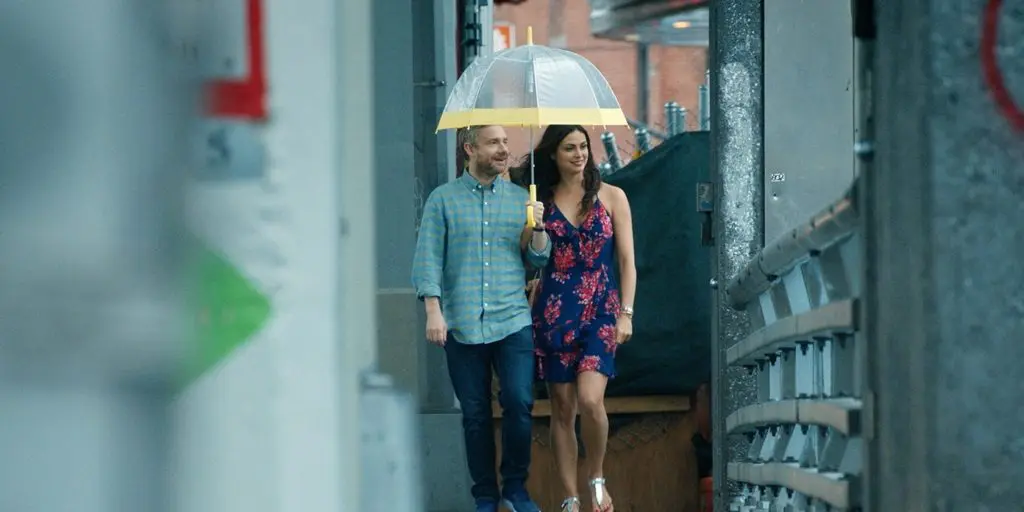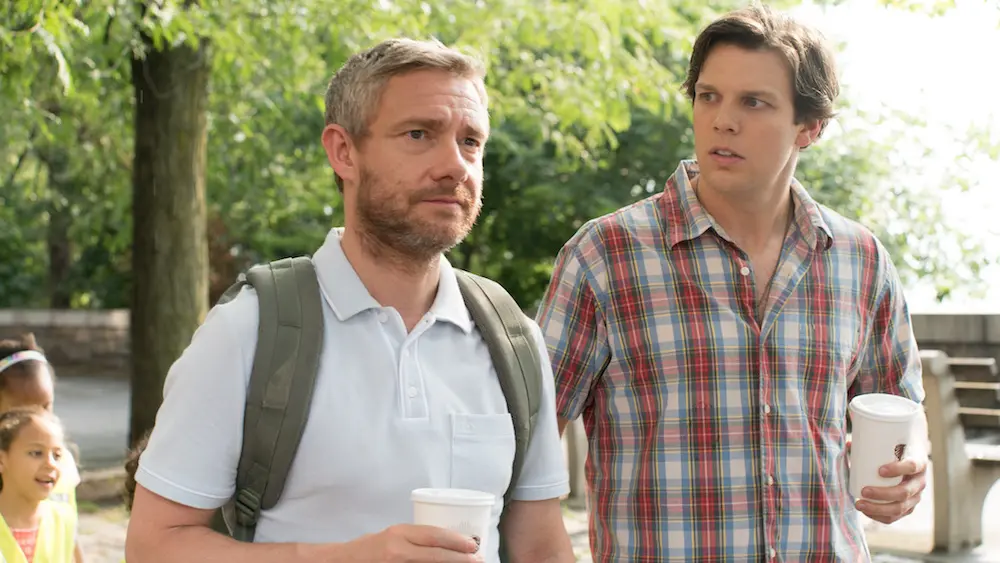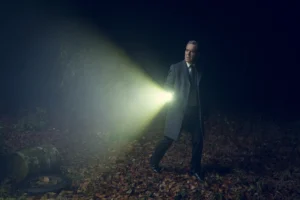Summary
A mildly charming and diverting rom-com that unfortunately lacks the depth it needed to make a more coherent and lasting point.
Jason Winer’s Ode to Joy falls into a sub-category usually favored by YA stories, with young stars, one or both of whom are afflicted by some terrible illness. Martin Freeman’s Charlie does indeed possess an affliction: He has cataplexy, a form of narcolepsy that makes him fall unconscious whenever he experiences strong emotions — joy, particularly. You’ll have noticed, I’m sure, that Martin Freeman is a not a young star; no Ansel Elgort or Olivia Cooke. Winer is taking a heartstring-tugging device commonly associated with films about growing up and applying it to middle-age, an interesting idea deserving of perhaps a more searching film.
Cataplexy is a new idea, too, and despite its medical seriousness, Ode to Joy has a lot of fun with it. Any surge of pleasure will lay Charlie out, so he’s constantly trying to stave off unconsciousness with reminders of tragedies and global crises, tacks in his shoes and funereal music in his ears. These efforts help make Ode to Joy approachable, but they don’t help it find much seriousness in medical or indeed romantic issues.

The romance — a particularly threatening thing for Charlie — comes from Francesca (Morena Baccarin), an implausibly gorgeous but dangerously dramatic woman who takes a shine to Charlie’s oddness and calm demeanor. A better fit for his personality is Bethany (Melissa Rauch), a mild-mannered and “safe” stand-in girlfriend who nonetheless can’t keep Charlie’s mind away from Francesca, who he has foisted on his younger brother, Cooper (Jake Lacy).
Raunch is a scene-stealer in Ode to Joy, in large part because it relies on oddness and comedy whenever it can’t mine any real dramatic territory — which is most of the time. But disliking this film is difficult. It has charms and an enthusiastic cast doing their utmost to mask its shallowness, and if it can’t quite hit the sentimental beats it would like, I don’t think that’s the end of the world. What we’re left with is a pleasant little film that operates in emotional territory even Charlie could probably cope with — though whether or not that’s a compliment is open to interpretation.




